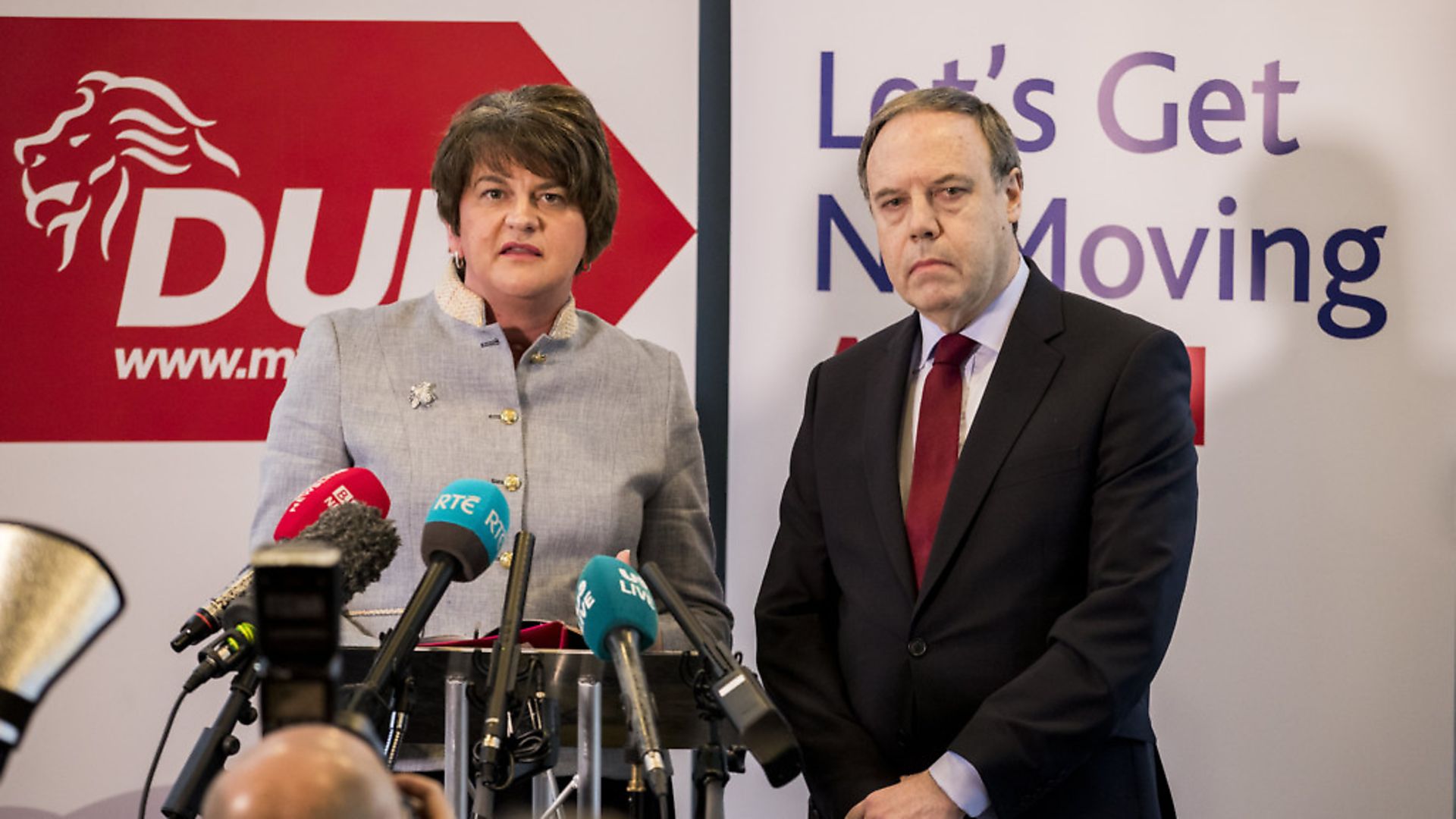
The DUP’s leader Arlene Foster has made clear her party would not support Jeremy Corbyn in the event of a hung parliament.
At the launch of a policy document in Belfast claimed that Corbyn would be bad for the future of the Union.
At an event that highlighted how the £1 billion secured by the DUP as part of its confidence and supply deal with the Conservatives had been spent in Northern Ireland, Foster predicted that the votes of her party’s MPs could again prove vital in deciding the make-up of the next government.
She insisted her party would not countenance a deal with Corbyn.
“A Jeremy Corbyn government would be bad for Northern Ireland and in a hung parliament we would not support him to be prime minister,” she said.
The DUP leader rejected the suggestion that Corbyn might be a more attractive option than Boris Johnson, given the Labour leader wants to renegotiate the prime minister’s Brexit deal – an agreement the DUP is strongly opposed to.
“We are very clear that we will not be supporting a Jeremy Corbyn-led Labour Party in a government because we believe Jeremy Corbyn would not only be hugely detrimental to the United Kingdom in terms of the break-up of the United Kingdom, and we have heard the whole discussion around the Scottish independence referendum, and we would be very fearful for the economy of the United Kingdom and we would be very fearful for the defence of our United Kingdom on a global scale,” she said.
“So there are many, many reasons why we couldn’t in all consciousness (sic) support a Jeremy Corbyn-led administration.”
At the launch of the DUP’s policy plan titled Let’s Get NI Moving Again, Foster urged unionists to come out in numbers to support her party’s 17 candidates.
“The stakes could not be higher for Northern Ireland and its future direction,” she said.
“That is why every vote in every part of Northern Ireland will be vital to shaping the future.”
She added: “Make no mistake, elections matter.
“The outcome of this election across the United Kingdom is still uncertain. As we have proved over the last two years, our votes may well be crucial.”








